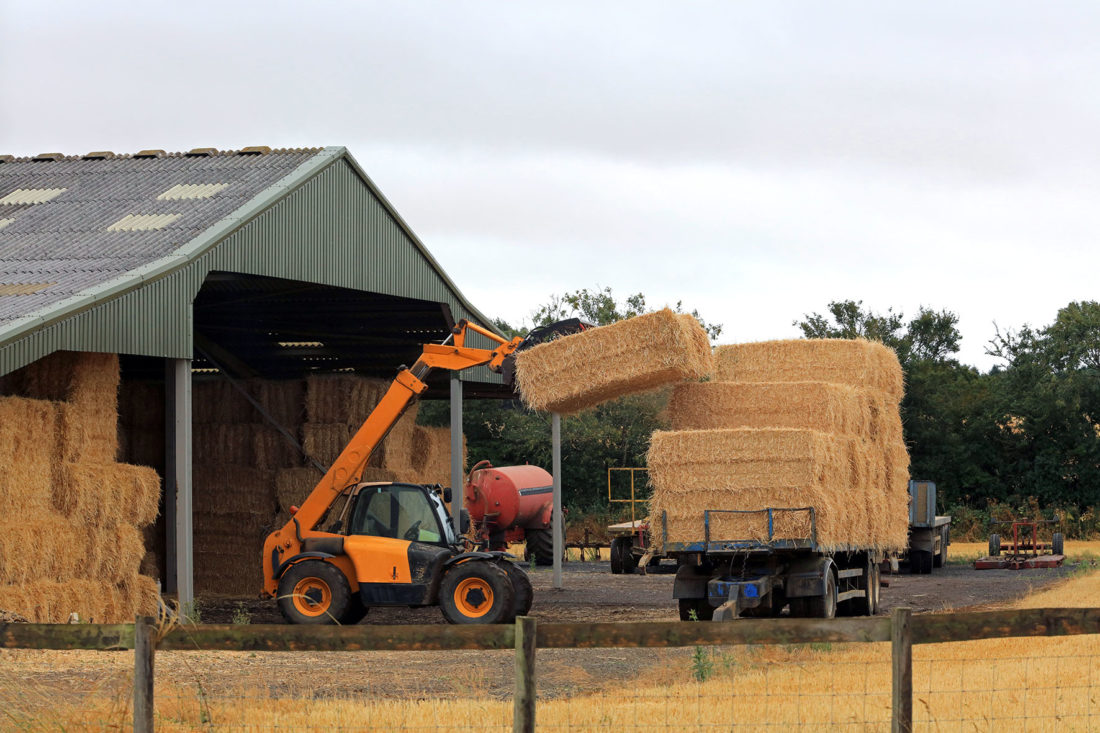
Stay safe and compliant on your farm
Key statistics about health and safety in the farming industry
The HSE report for 2020/2021 shows that 41 people were killed as a result of farming and other agricultural activities, which means that agriculture still has the worst rate of worker fatal injury (per 100,000) of all the main industry sectors (the annual average rate over the last five years is around 20 times higher than the all-industry rate).
Of those killed, 9 were employees, 25 self-employed and 7 were members of the public. More than half of the workers killed were aged 60 years or older.
Current legislation
Farmers need to comply with current legislation including Lifting Operations and Lifting Equipment Regulations 1998 (LOLER), the Control of Substances Hazardous to Health Regulations 2002 (COSHH) and Pressure Systems Safety Regulations (PSSR) among others to ensure the safety of their site.
Inspections must happen at regular intervals to ensure the safety of anyone who comes onto the site, including employees, contractors and members of the public.
LOLER
LOLER includes inspecting of equipment such as tractor foreloaders, fork lift trucks and telescopic handlers (telehandlers), workshop hoists and rope hoists, cranes on machines (eg. fertiliser spreaders) and lifting attachments/accesories.
Lifting equipment must be thoroughly examined by a competent person when it is first put into service; following major refurbishment or repair; after installation at a new location; and at intervals suitable to detect deterioration arising from wear and tear.
LOLER’s thorough examination process is designed to protect both operators and people in the vicinity of lifting operations who may be at risk if lifting equipment suddenly fails.
COSHH
COSHH regulations are aimed at eliminating exposure, controlling exposure and monitoring health. Examples of hazardous substances include those used directly in work activities such as fertilisers, and those that are naturally occuring such as poultry dust and silo and slurry pit gases.
PSSR
Items under pressure or using steam, such as a slurry tanker or air compressors, must be thoroughly examined under PSSR. The aim of PSSR is to prevent serious injury from the hazard of stored energy (pressure) as a result of the failure of a pressure system or one of its component parts.
Regulations and your legal duties
It is a legal requirement to have the right certifications in place and failure to have these after an incident could leave you in serious trouble.
For example, if you do not have an in-date Engineering Inspection Certificate on your telehandler/front end loader/lifting equipment or have adequate handler certification/training and you are unfortunate to have a serious accident, the HSE could decide to prosecute you. If this happens, your legal representation (covered by your legal expenses insurance) will be restricted in how they are able to support you.
A failure to inspect under LOLER is a breach of the law in it’s own right and should an accident happen, would be considered as part of an investigation that could result in a prosecution.
Failing to adhere to regulations could result in:
- Enforcement action being taken against you giving rise to cost recovery by HS
- Prosecutions being brought against either your company (in the case of limited companies) and/or individuals potentially resulting in large fines, disqualification and/or imprisonmen
- Hefty legal bill
Remember: Adhering to regulations and keeping your certifications up-to-date could more importantly prevent an accident, and save someone’s life.
Here to help
At FUW Insurance Services Ltd, we are proud to support farmers and provide the best tailored advice we can. As part of the Farmers’ Union of Wales (FUW Ltd), we consider it our responsibility to keep our farmers and communities as safe as possible, which is why we recommend that all farm businesses should have their engineering inspection certificates and the appropriate handler training/certificates.
Health and Safety on the farm is important, to manage your risks and keep you and others safe. Don’t become one of the statistics.
For more information about managing your risks, contact your local Account Executive today.
